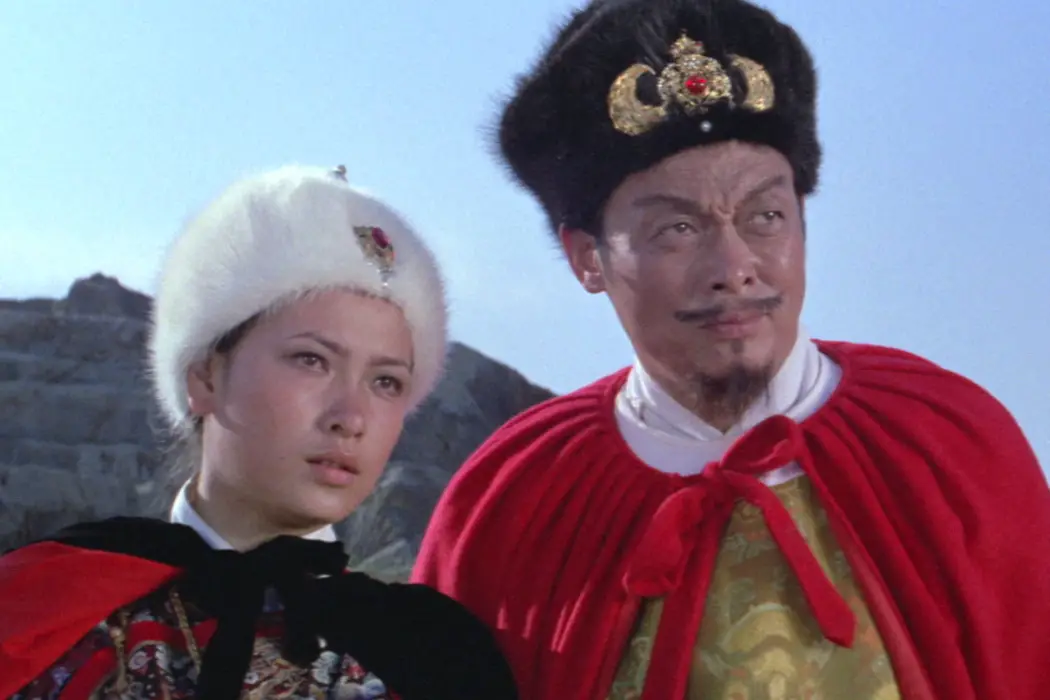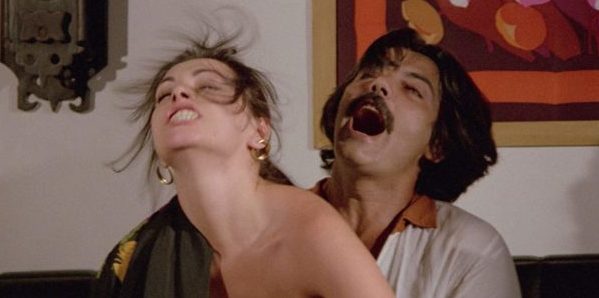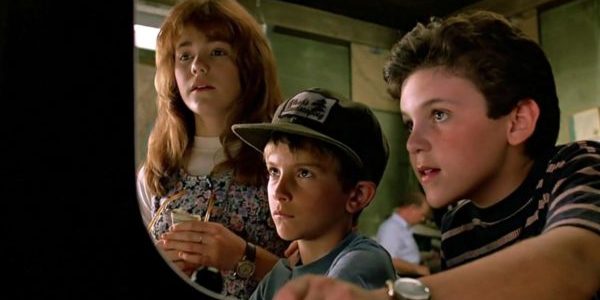Video Dispatches: JESS FRANCO, KING HU, THE WIZARD, GWENDOLINE

Midwesterner, movie lover, cinnamon enthusiast.
Video Dispatches is a regular column covering recent home video releases.

Cries of Pleasure (1982) / The Night of Open Sex (1983) – Severin Films
Severin Films recently announced two concurrent releases of Jess Franco films from the same period in his career, and both of which were previously hard to come by. Though both are unmistakably Franco films, they’re both distinct and, as a double bill, bring out some of the filmmaker’s unique traits, if you don’t buy “strengths.” (I do.) And Severin has bridged them with special features that mark parts one and two of each other — one about Franco’s location shooting and another in-depth discussion of the director from Stephen Thrower, perhaps the most known critical voice on Franco.
Thrower’s voice on these discs is invaluable, especially for those who might be new to Franco. He offers such great critical inroads to appreciating what exactly makes Franco’s so special and unique. While The Night of Open Sex has the more shocking and attention-grabbing qualities, there’s so much there to gravitate towards and explore in the way the filmmaker creates atmosphere, dwelling on movement and spaces rather than narrative. And Cries of Pleasure, which came out previously, doubles down on those instincts. It’s a film with such sparse elements, least of which narrative development, but it’s pregnant with interesting cinema.
On paper, this might sound like the cinema of stereotypical arthouse European filmmakers that the canon has embraced, but it doesn’t take much to discern that Franco is working on his own register — particularly why he hasn’t been embraced by any canon of prestige.

The Fate of Lee Khan (1973) – Film Movement
I’ve heard that The Fate of Lee Khan, King Hu’s follow-up to A Touch of Zen — his most famous film — is not the best place to start with his incredible oeuvre. Having now seen it (I heeded that writer’s advice), my guess is that assertion was made because The Fate of Lee Khan has the most intricate plot of the half-dozen I’ve seen. And while much of it takes place inside an inn, like many others, it’s a bit more claustrophobic, with less wuxia action than Dragon Inn or Come Drink With Me — probably the best starting point.
On the Blu-ray’s only video feature, a chat at NYAFF, the festival’s founder talks about The Fate of Lee Khan’s glorious ending, when the film makes a cathartic visual break from the inn to the wide expanses outside — no one was better at visually oscillating from indoors and out than Hu — for a beautiful fight scene. Apparently, this was a studio mandate that Hu did not approve of, which begs unanswerable questions about how he really wanted to end it, what that version would’ve looked like, and whether the mandate forced him into his own strengths or not.
I belatedly took in this release concurrent with the UK label 88 Films’ release of Come Drink With Me, and while I’m thankful for Stephen Teo’s included booklet essay [info from it], it’s hard not to be a bit critical of this release. It looks somewhat thin next to it, as well as the recent release of Raining in the Mountain from other UK label Eureka, if for no other reason than it lacks a commentary track. Both of the other releases include incredible tracks that allow uneducated Western audiences like myself a chance to contextualize Hu’s work — understand where he’s pulling influences from and the historical layers in his plotting.
That said, any HD release of a Hu film feels like an incredible gift and warrants a blind purchase. A while back, Film Movement announced their acquisition of the US rights to Raining in the Mountain and planned to release the Blu-ray of it this summer. Hopefully, that hasn’t been delayed.

The Wizard (1989) – Shout Factory
After the release of a lackluster standard Blu-ray a couple of years ago, and reportedly much demand from its fanbase, Shout Factory has released a two-disc edition of Tom Holland’s The Wizard on its Shout Selects label that should adequately pacify lovers of the late-80s video game-based children’s adventure film.
Besides a new 4K restoration, the set includes deleted scenes, new interviews, extensive Q&A footage, a Holland commentary, which is fairly average but also drew my attention to the fact that he also directed a couple episodes of Twin Peaks (in the weakest stretch of the series’ run), and a couple minor but fun features with a former video game hotline operator and a clinical analysis of the film.
I hadn’t seen the film since I was a child and could only recall certain flashes, such as the Power Glove bit. Revisiting it now, I found it hard to muster any renewed enthusiasm for The Wizard, which plays more like a children’s version of Rain Man if he were a gamer, as well as a prolonged advertisement for Nintendo. But it’s easy to see why it garnered so many contemporaneous fans — it is wish fulfillment for any bored child looking to get out of the house, forge new friendships and play the latest tech.

Gwendoline (aka. The Perils of Gwendoline in the Land of the Yik Yak) (1984) – Severin Films
Severin’s Blu-ray package of Just Jaeckin’s Gwendoline advertises (as I’m sure contemporary advertisements did) the film as a piece of erotica, which…I guess there is technically erotic elements — surely many nude women — but the film’s natural fun and sense of adventure took me by surprise.
I’ve heard the film compared to Jane and the Lost City, which is lost on me, but the Gwendoline called to mind, for me, Romancing the Stone and its particular brand of exotic but goofy romance. Unfortunately, the film is bifurcated almost in half and moves from desert fun to sterile, nude dungeon captivity picture. Thankfully, before it cuts away from the adventure, there is a terrific sex scene between the three main characters. All three are tied up, laying on top of bamboo chutes, and manage to have non-physical sex. The way Jaeckin, a filmmaker who mainly trafficked in sexuality, is able to make this scene genuinely sexy and fun is quite an achievement.
Even by Severin’s standards, this release is packed to the gills, including both the uncut version, Gwendoline, and the alternate US cut, The Perils of Gwendoline in the Land of the Yik Yak, which Jaeckin, on the commentary, which I recommend, details that 15 minutes were cut from. I watched the longer cut, but judging by what is cut from that version — stuff from the film’s less fun half — I will certainly be diving into the shorter cut on a revisit.
Other features that stick out are some fun promotional segments from the two leads and Tawny Kitaen’s photospread as Gwendoline reproduced from the French erotic magazine LUI.
Does content like this matter to you?
Become a Member and support film journalism. Unlock access to all of Film Inquiry`s great articles. Join a community of like-minded readers who are passionate about cinema - get access to our private members Network, give back to independent filmmakers, and more.













